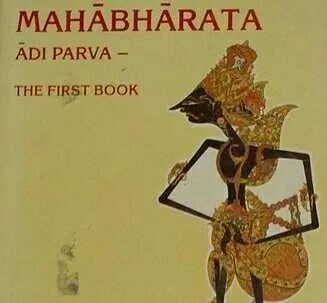
As the parent story, Mahabharata, Adiparwa's book was originally written in Sanskrit and is considered a sacred story for Hindus. Not recorded when exactly this story goes to Indonesia. However, as mentioned in the introduction to the ancient Javanese version of Adiparwa, this book has been copied into ancient Javanese or also known as Kawi language during the reign of King Dharmawangsa Teguh (Kediri kingdom, 991-1016) (Zoetmulder, 1994).
Influence in culture
The Book of Adiparwa, translated from Sanskrit to Old Javanese or Kawi, has been widely composed into puppet stories. In the Adiparwa texts translated from Sanskrit there may be a difference with the puppet plays, which are sometimes immense, giving the impression that everything is happening in Java.
This is due to the intelligence of the poets of the past who are able to move the minds of the readers or listeners from the atmosphere of India to the Original Java. If Hastinapura is actually in India, then names such as Jonggringsalaka, Pringgandani, Indrakila, Kiskenda Cave, until Mount Mahameru are brought to Java.
Similarly, Pancawala (Pancakumara) figure. If in the original version they consist of five people, then in the puppet they are said to be only one person. According to Mulyono in his article entitled "Dewi Dropadi: Between Mahabharata and Javanese Pewayangan", he stated that the different story of the Pancawala between the Mahabharata with the story in Javanese puppetry because of the influence of the development of Islam in the land of Java.
The same thing happened to the story of Dewi Dropadi in Adiparwa. If in Adiparwa he married five people, then in Javanese puppetry (which has been affected by Islam) Draupadi only married one person only. According to Islamic law, a woman should not have more than one husband.
Therefore, the story of Dewi Dropadi in the original version of Mahabharata with Hindu pattern violate Islamic law. To anticipate, the poets or Islamic artists change the story to fit the teachings of Islam. The actual porfawala is the five sons of the Pandavas were transformed into a figure who was the son of Yudhisthira alone.